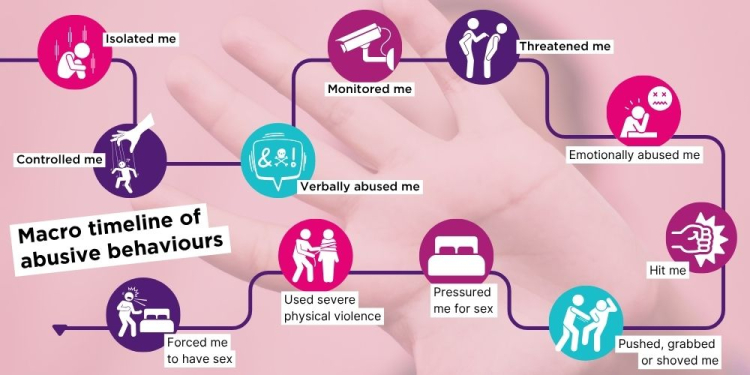
A new study in the Journal of Women’s Health has shown, for the first time, how intimate partner violence (IPV) often develops over time in relationships. This helps us understand when to better prevent abuse and step in early.
The study was led by researchers at the University of Melbourne and the Royal Women’s Hospital. They surveyed 815 Australian women who faced abuse. They asked them to describe the order of emotionally, physically and sexually abusive behaviours they had experienced, starting with the earliest sign something was wrong.
This work is part of the UNCOVER Project, funded by the Oak Foundation and run by the Safer Families Centre at the University of Melbourne.
Dr Elizabeth McLindon, a Research Fellow at the University of Melbourne and Deputy Director of the Centre for Family Violence Prevention at the Royal Women’s Hospital, led the study.
Dr McLindon said, “What stood out most is that emotional abuse occurred in nearly all violent relationships. It usually began before any physical or sexual abuse.”
The first signs of abuse were being isolated from friends and family and feeling controlled. Non-physical abuse often began before couples made a major commitment to one another. Physical and sexual abuse typically happened later, following key events like moving in together, getting married, or having kids.
For women with children, the study found that sexual abuse sometimes got worse after childbirth. Many women worried about how the abuse impacted their children. This often led them to seek help or leave the relationship.
The most common abuse last year was a mix of physical, emotional, and sexual types. Over one-third of women, about 36.6%, experienced this. Alarmingly, about one in three women still fear their current or former partner.
“No other studies have asked so many survivors to create an electronic timeline with the order of abusive actions in a recent relationship. This is new and important,” Professor Kelsey Hegarty said.
Professor Hegarty was a study co-author and is the Professor of Family Violence Prevention at the University of Melbourne. She is also the Director of the Women’s Centre for Family Violence Prevention.
The study shows that noticing emotional abuse early matters. It’s often the first sign of controlling behaviour.
“By mapping this timeline, we can learn when and how to step in earlier and better,” Dr McLindon said.
The Royal Women’s Hospital is leading efforts to better understand and end family violence. Our Centre for Family Violence Prevention, in partnership with the University of Melbourne, aims to improve the safety, health and wellbeing of women and their families by strengthening a whole-of-health-system response.
Read the full research paper: Timelines of psychological, physical and sexual intimate partner violence among a nationally representative sample of Australian women | Journal of Women’s Health